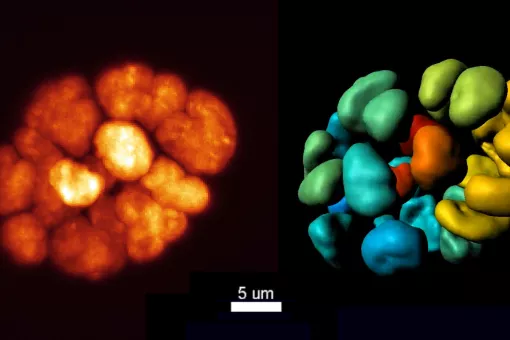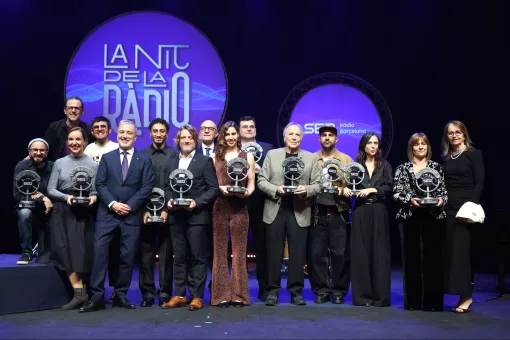Images
IRB Barcelona's adjunct director is one of 63 individuals and 15 organizations honoured this year by the Government of Catalonia
Joan Massagué, adjunct director of the Institute for Research in Biomedicine (IRB Barcelona) and head of the Cancer Biology and Genetics Program at New York's Memorial Sloan-Kettering Cancer Center has been awarded the prestigious Creu de Sant Jordi 2007 (St. Jordi's Cross), as announced by the Government of Catalonia on September 19.
Massagué receives the prize in recognition of the significant contributions he has made, as one of the world's leading scientists, to the understanding of the regulation of cell division and cancer cell metastasis.
This year, the Government of Catalonia has awarded 63 individuals and 15 organizations the Creu de Sant Jordi. The prize - the highest recognition in Catalonia - was established in 1981 to honour outstanding individuals and organizations engaged in civic, social, cultural, economic, and political activities.
Short Biography
Joan Massagué (Barcelona, 1953) is Adjunct Director of the Barcelona Institute for Research in Biomedicine. He is also is Chairman of the Cancer Biology and Genetics Program at the Memorial Sloan-Kettering Cancer Center, New York City, Investigator of the Howard Hughes Medical Institute. He received his Ph.D. degree in Pharmacy (Biochemistry) from the University of Barcelona in 1978, and was a postdoctoral fellow at Brown University, where he discovered the structure of the insulin receptor. In 1982 he became Professor of Biochemistry at the University of Massachusetts Medical School until he assumed his current position in 1989.
Joan Massagué is interested in how growth factors, signaling pathways, and gene expression programs control normal cell behavior and cancer cell metastasis. Combining cell biology, biochemistry and genetics, he elucidated fundamental machinery that conveys TGF-b growth inhibitory signals from the cell membrane to the nucleus. An end result of this process, Massagué found, is the inhibition of cell division through novel CDK inhibitors that he co-discovered. His work provided a direct explanation for how external signals block mammalian cell division. These mechanisms are now known to be crucial in embryonic development, and their disruption causes tumor formation and metastasis. Massagué has recently identified genes and mechanisms that mediate the ability of breast tumors to form metastasis in vital organs, answering long-standing questions and opening new avenues of investigation into this devastating aspect of cancer.
Joan Massagué is an elected member of the National Academy of Sciences, the American Academy of Arts and Sciences, the Spanish Royal Academies of Medicine and Pharmacy, and the European Molecular Biology Organization.
About IRB Barcelona
The Institute for Research in Biomedicine (IRB Barcelona) pursues a society free of disease. To this end, it conducts multidisciplinary research of excellence to cure cancer and other diseases linked to ageing. It establishes technology transfer agreements with the pharmaceutical industry and major hospitals to bring research results closer to society, and organises a range of science outreach activities to engage the public in an open dialogue. IRB Barcelona is an international centre that hosts 400 researchers and more than 30 nationalities. Recognised as a Severo Ochoa Centre of Excellence since 2011, IRB Barcelona is a CERCA centre and member of the Barcelona Institute of Science and Technology (BIST).





